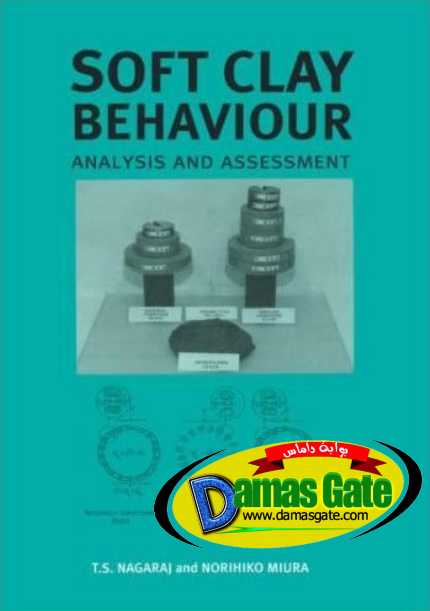Soft Clay Behaviour

Preface
As a civil engineering material, soil is as important as steel or concrete. The unique
feature of this material is that it largely comes engineered by nature, unlike other
materials which have to be manufactured or processed to specific requirements
with the product quality ensured. So geotechnical engineers concentrate on the
cardinal task of characterizing the properties of this natural large volume material,
before integrating the results with analysis to design contemplated structures to
meet the strict performance requirements.
This book is primarily concerned with the analysis and assessment of the behaviour
of soft clay in compression and shearing, both in their undisturbed and
strengthened states. Soft clay deposits are widespread and cover many coastal
regions of the world, such as in Japan, Eastern Canada, Norway, Sweden and other
Scandinavian countries, India, and the South East Asian countries. Another feature
of these coastal regions is that certain shore areas are lowlands, quite often due
to subsidence on account of excessive withdrawal of ground water. The Central
Plain (Chao Phraya) of Thailand and Saga Bay in Southern Japan are some
examples
of lowland areas. All these are inhabited zones, having undergone extensive
urbanization and industrialization. Further extensive developmental activities
are apace in many lowland areas to promote human activities, such as agriculture,
industry, housing and such other infrastructure facilities.
Generally, soft clays exhibit low strength and high compressibility. Many are
sensitive, in the sense that their strength is reduced by mechanical disturbance.
Foundation failure is likely in structures erected in soft clays. Surface loading beyond
yield stress levels due to embankments and shallow foundations inevitably results
in large settlements. It is primarily because these soils respond in a spectacular
manner to stress changes, that the geotechnical engineer
has an obligation to examine to what
extent soft clay behaviour can be analyzed within the framework
of classical developments in soil mechanics.
Download
*